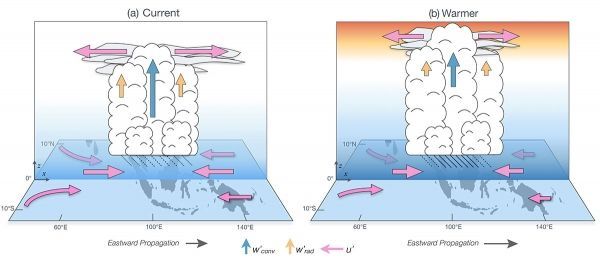Every month or two, a massive pulse of clouds, rainfall and wind moves eastward around the Earth near the equator, providing the tropics their famous thunderstorms.
This band of recurring weather, first described by scientists in 1971, is called the Madden-Julian Oscillation. It has profound effects on weather in distant places, including the United States. Atmospheric scientists have long studied how the Madden-Julian Oscillation modulates extreme weather events across the globe, from hurricanes to floods to droughts.
As human activities cause the Earth’s temperature to increase, reliable, well-studied weather patterns like the Madden-Julian Oscillation will change too, say researchers at Colorado State University.
Eric Maloney, professor in the Department of Atmospheric Science, has led a new study published in Nature Climate Change that attributes future changes in the behavior of the Madden-Julian Oscillation to anthropogenic global warming. Maloney and co-authors used data from six existing climate models to synthesize current views of such changes projected for the years 2080-2100.
Continue reading at Colorado State University
Image via Colorado State University


